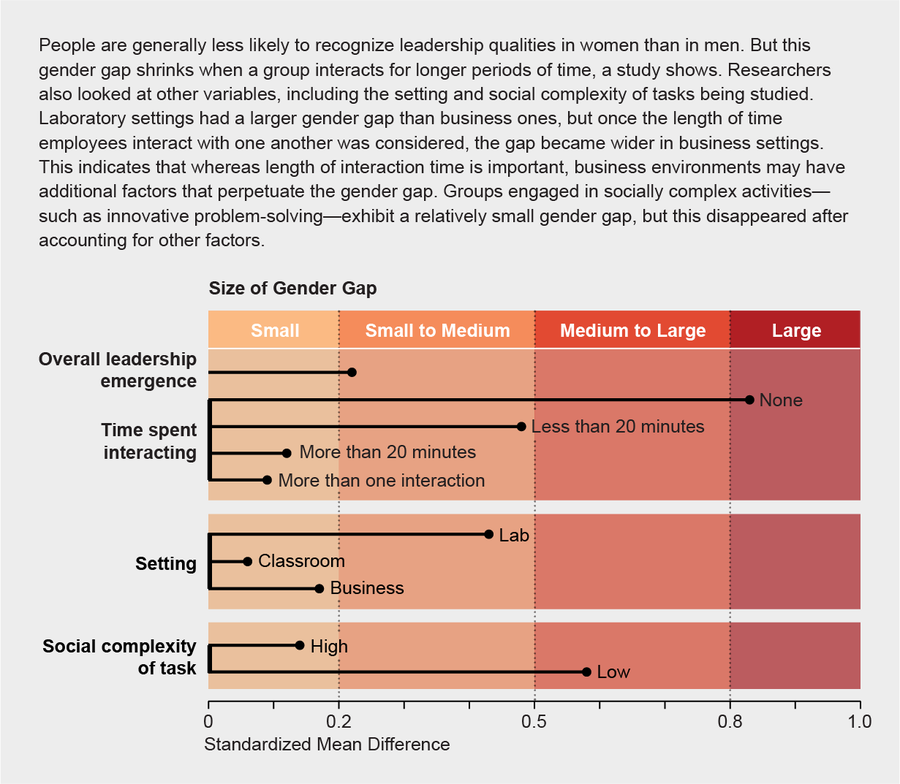Only 28 percent of American CEOs are women. To find out why such a gap exists, a study published in 2018 in Personnel Psychology analyzed more than 100 papers on leadership emergence published between 1957 and 2017. In the papers, samples of students or co-workers were asked to select group leaders or to rate one another on the extent to which they led a group. Some of the papers also measured group participation and personality traits such as assertiveness. As predicted, men emerged as leaders more often than women. But that gap varied depending on the length of interaction and other factors.
The data suggest that men were more likely overall to be chosen or rated as leaders, in part because they had more assertive personalities and thus spoke up more. Men and women were equally likely to emerge as leaders, however, when groups interacted for more than 20 minutes—possibly, the researchers write, because members relied less on gender stereotypes as they became better acquainted.

Credit: Amanda Montañez; Source: “Gender and Leadership Emergence: A Meta-Analysis and Explanatory Model,” by Katie L. Badura et al., in Personnel Psychology, Vol. 71, No. 3; Autumn 2018
On supporting science journalism
If you're enjoying this article, consider supporting our award-winning journalism by subscribing. By purchasing a subscription you are helping to ensure the future of impactful stories about the discoveries and ideas shaping our world today.
Other research shows that male and female leaders perform equally well. Considering the gender gap at the top of organizational charts, “that's a ton of human capital that organizations are ignoring,” says Katie Badura, a management researcher at the Georgia Institute of Technology and the lead author of the study. She says women should not be asked to change their behavior as a way of addressing this situation; rather organizations should train employees to change their perspectives.
Alice Eagly, a psychologist at Northwestern University, who conducted a similar analysis 27 years ago, praised the project's large scale. Eagly advocates for women's empowerment, but she also has advice for men: “Be less dominant. Let other people have some time to talk.”
